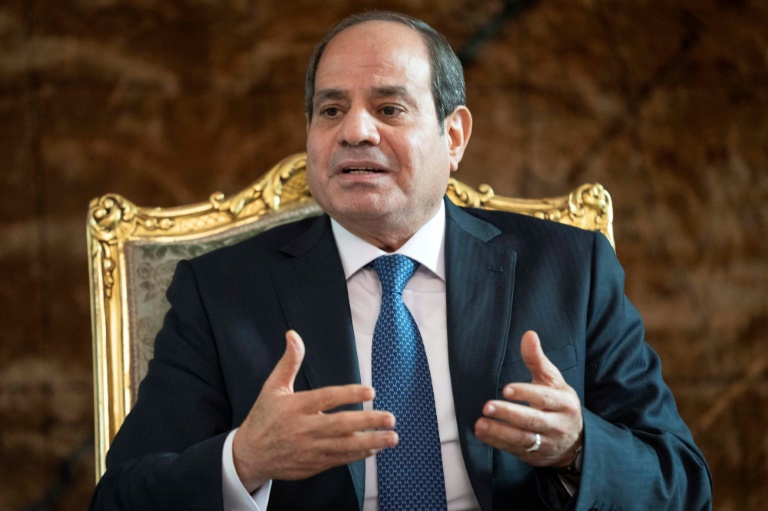Egypt’s leader Sisi, ex-general with a liking for mega-projects

Egypt’s President Abdel Fattah al-Sisi meets with the US Secretary of State (not pictured) in Cairo on October 15, 2023. After Egypt Blinken will head back to Israel on October 16 for his second visit in less than a week following a tour of six Arab countries on the crisis with Hamas, the State Department said.
Cairo – Egypt’s President Abdel Fattah al-Sisi is a former army and military intelligence chief with a fondness for aviator-style sunglasses and mega-projects.
At a grand ceremony on Tuesday in Egypt’s New Administrative Capital, which he has built in the desert, the 69-year-old is embarking on a third term at the helm of the Arab world’s most populous country.
He came to power more than a decade ago promising prosperity for all, and his face was plastered across vehicles, trinkets and even baked goods in what was dubbed “Sisimania”.
But the country he leads has needed multiple multi-billion-dollar bailout loans just to avert economic collapse, landing more than $50 billion in fresh financing already this year.
And his administration’s sweeping crackdown on rivals, critics and activists has curtailed nearly all space for public dissent.
With Egyptians struggling to survive two years into the nation’s worst-ever economic crisis, his popularity has slumped dramatically.
– ‘Stop talking nonsense’ –
Born in November, 1954 in Cairo’s al-Gamaleya neighbourhood, Sisi graduated from Egypt’s military academy in 1977. He later studied in Britain and the United States.
The former military intelligence chief has four children, including Mahmoud, a high-ranking officer in state intelligence.
He won the first of three elections in 2014 after the army toppled Islamist president Mohamed Morsi, who won power in a tightly fought election but attracted massive protests.
Sisi has had an easier ride at the ballot box, scoring almost 90 percent against three unknown opponents in December last year after winning 97 percent in both 2014 and 2018.
During his early years in power, his supporters hailed him for stamping out terrorism and guiding the country out of political chaos and economic ruin.
Soft-spoken and often seen seated with a microphone in hand during public events, he pushed an image of the father of the nation, calling Egyptians “the apple of his eye”.
A decade later, the former military man is displaying a harder edge with his people.
He has told Egyptians to “stop talking nonsense” about the economy and that they must face up to “hunger and deprivation” if they want progress.
But after watching their life savings repeatedly decimated, even his die-hard supporters have grown disillusioned.
– Sisi ‘alone’ –
His supporters back him as a visionary maverick blazing the trail for his “new republic”.
Sisi has prided himself on personally overseeing opaque state development funds and directing government spending — including to eradicate Hepatitis C, once a devastating epidemic in the country.
But according to some, the personality cult could prove more weakness than strength.
Sisi rules “alone, and is blamed alone” for Egypt’s woes, veteran activist Hossam Bahgat told AFP.
The crowning jewel of the republic, for instance, is a $58 billion New Administrative Capital in the desert east of Cairo, which has been criticised as a vanity project and a waste of public money.
Two-thirds of Egypt’s 106 million people lived on or below the poverty line even before the crisis.
The country teetered on the brink of default before wealthy Gulf ally the United Arab Emirates pledged $35 billion in loans, and Egypt secured financing agreements with international lenders.
Sisi’s government insists it can pass economic reforms demanded by the lenders and unite the country.
In the last two years, the government has doled out high-profile presidential pardons and releases and launched a “national dialogue” to bring political factions together.
But rights groups say political arrests have continued apace, adding to the tens of thousands of political prisoners they say had already been detained during his rule.
A decade of repression and tight control of the media has concentrated power in his hands and decimated the once sizable opposition.
“An entire generation has grown up not knowing there were once broadcasts and newspapers and institutions where you could criticise power,” Bahgat told AFP.
